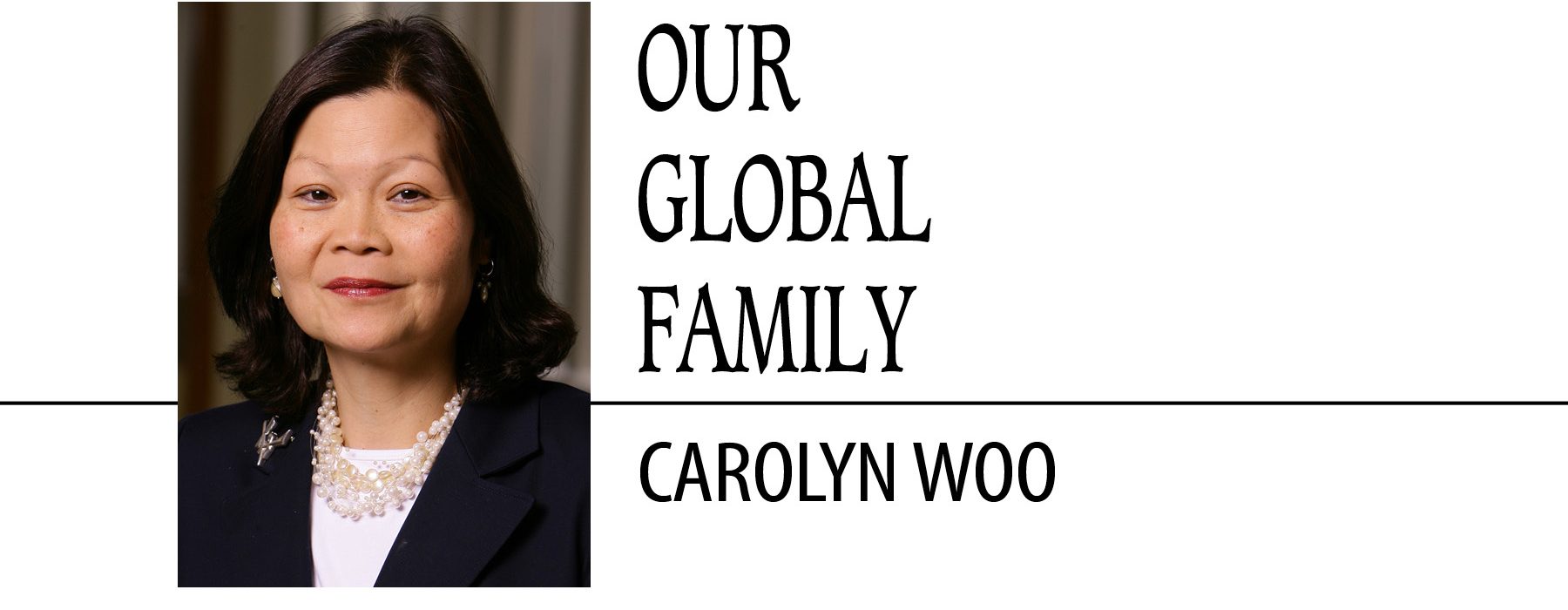August 13, 2019 // Perspective
Marriage: When expectations yield to love
This summer marks the special occasions of David’s and my 40th anniversary and the marriage of our older son Ryan to Sarah, our new daughter.
In one of the pre-wedding festivities, I asked the men gathered, married from 10 to 50 years, what advice they have for the groom-to-be. They responded with this sheepish, knowing laugh that seemed to communicate the sentiment, “You don’t know what is in store.”
One pointed to the plaque on the wall with the inscription, “Happy wife, happy life.” They all chimed in, “This is it.” There was a collective explanation that when you are a bachelor, you get to your chores at some time and in some manner. But wives are very specific: They need things done by a particular time (usually now) and in a particular way (theirs). They seem to do so with unequal parts of cajoling, list-making and tyranny.
“Why You Will Marry the Wrong Person,” an op-ed by Swiss and British philosopher Alain de Botton in The New York Times, May 28, 2016, was the most read article of the paper in that year. While it seems to deride marriage, the essay actually proposes what it takes to succeed in marriage.
It suggests that most people are too enamored to know, or want to know, the whole person they fall head over heels for and then marry. Romantic love stories traditionally set the apex at the altar and then leave generations of readers with “and they lived happily ever after.”
Well, they don’t. We find that we are actually difficult to live with; we make demands on each other that can be self-centered or arbitrary; we are more different than we think; we have neuroses and baggage that trigger dramatic reactions to what seem to be throwaway comments. It is a letdown to realize that not all our needs — such as loneliness, security or affirmation — can be met.
Moreover, we find that our spouses come with families and friends who place claims on our time, resources and emotional well-being. We would have married the wrong person if the right person is the “perfect being … who can meet all our needs and satisfy our every yearning.”
De Botton proposes the work of marriage as the ability to “accommodate ourselves to ‘wrongness,’ striving always to adopt a more forgiving, humorous and kindly perspective.” Compatibility, he reminds us, is the outcome of love, not its precondition.
From experience, I know grace happens when stifling expectations for the “perfect” spouse give way to appreciation of his or her goodness, vocation, gifts, vulnerabilities, heartfelt expressions of care and shortcomings. We should be most watchful about the tendency to remake spouses fit for our use to meet our needs and vanities.
While marriage is work, it is built on such simple things as “please,” “may I,” “thank you” and “sorry,” the folksy advice that Pope Francis frequently gives to married couples. The strength of a marriage comes in times of difficulties when there are no answers, no guarantees, no safety net, but only the confidence that you can make it because you have each other.
Commitment gives the space where healing can begin when one is at his or her worst and totally unreasonable, yet the spouse stays put.
The above is not only possible, but it is the plan of God for marriage. Holy Cross Father Bill Beauchamp, in his homily at Ryan and Sarah’s wedding, reminded the couple, “Today you pledge yourselves to the unknown. You do not fully comprehend what you are promising to each other today, but you do so freely and with much excitement and joy, confident that God will be with you in your marriage.”
Carolyn Woo is distinguished president’s fellow for global development at Purdue University and served as the CEO and president of Catholic Relief Services from 2012 to 2016.
The best news. Delivered to your inbox.
Subscribe to our mailing list today.






